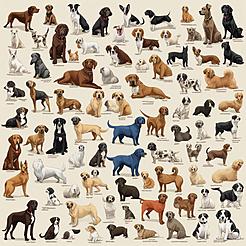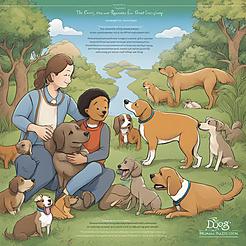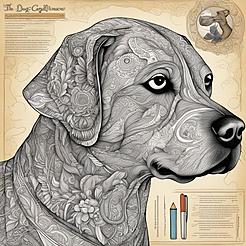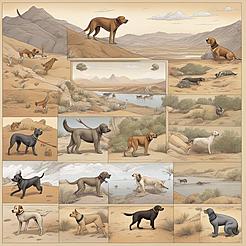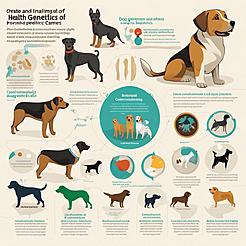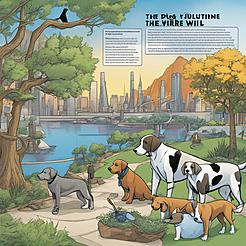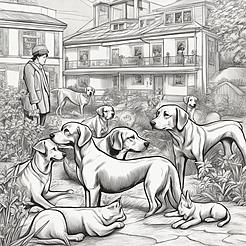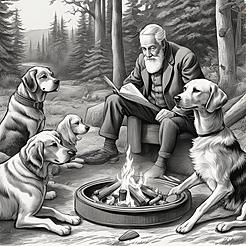 henrydjacob
henrydjacob- Chapter
- 2024-04-15

In the intricate tapestry of our shared journey with dogs, where human influence intertwines with the forces of natural selection, there exists a chapter that delves deep into the moral fabric of our relationship with our loyal canine companions. This chapter, titled "Ethical Considerations in Dog Breeding," casts a spotlight on the profound ethical implications that accompany the practice of selective breeding, urging us to reflect on the delicate balance between breed standards and the well-being of dogs.
As we embark on this contemplative exploration, we find ourselves at a crossroads where the choices we make as stewards of the canine genetic legacy hold profound significance. The legacy of selective breeding, a cornerstone of the diverse array of dog breeds we cherish today, is marked by a complex interplay of tradition, innovation, and responsibility. While selective breeding has enabled us to mold dogs to fulfill specific roles and exhibit desired traits, it also raises poignant questions about the ethical foundations that underpin our interactions with these beloved animals.
At the heart of ethical considerations in dog breeding lies the tension between breed standards and the welfare of individual dogs. The pursuit of breed perfection, characterized by stringent conformation standards and aesthetic ideals, can sometimes come at a cost to the health and well-being of dogs. In our quest to create dogs that conform to arbitrary standards of beauty or performance, we may inadvertently perpetuate genetic disorders, physical deformities, and behavioral issues that compromise the quality of life for these sentient beings.
The words of renowned animal behaviorist and author, Patricia McConnell, resonate deeply in this discourse: "Breeding dogs should never be about creating a perfect physical specimen at the expense of the dog's well-being. True beauty lies in a healthy, happy dog who embodies the essence of its breed with vitality and joy." These words serve as a poignant reminder that ethical dog breeding transcends mere aesthetics, calling for a holistic approach that prioritizes the health, temperament, and longevity of dogs above all else.
Moreover, the ethical considerations in dog breeding extend beyond the realm of individual welfare to encompass broader societal implications. The rise of designer breeds, fueled by market demands and trends, has given rise to a commodification of dogs that threatens to undermine their intrinsic value as sentient beings. As we navigate the ethical minefield of commercial breeding practices and genetic manipulation, we are compelled to confront the moral imperative of upholding the dignity and rights of dogs as living, breathing creatures deserving of respect and care.
In the tapestry of ethical considerations in dog breeding, we are called to embrace a paradigm shift that places compassion, stewardship, and mindfulness at the forefront of our interactions with dogs. The principles of ethical breeding demand that we approach the genetic manipulation of dogs with humility, empathy, and a deep sense of responsibility towards the well-being of future generations. Each decision we make as breeders, owners, and advocates carries the weight of moral consequence, shaping the destiny of dogs and the legacy we leave for generations to come.
As we navigate the complexities of ethical considerations in dog breeding, guided by the lessons of natural selection and the enduring bond between humans and dogs, we are reminded of our shared responsibility to safeguard the genetic heritage of these remarkable animals. In the delicate dance between tradition and innovation, aesthetics and ethics, let us strive to honor the intrinsic worth of dogs, celebrating their unique qualities, quirks, and imperfections that make them cherished companions in our journey through life.
References:
- McConnell, Patricia B. "The Other End of the Leash: Why We Do What We Do Around Dogs." Ballantine Books, 2003.
- Serpell, James. "In the Company of Animals: A Study of Human-Animal Relationships." Cambridge University Press, 1996.

